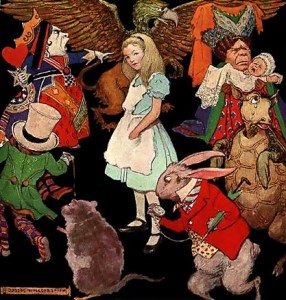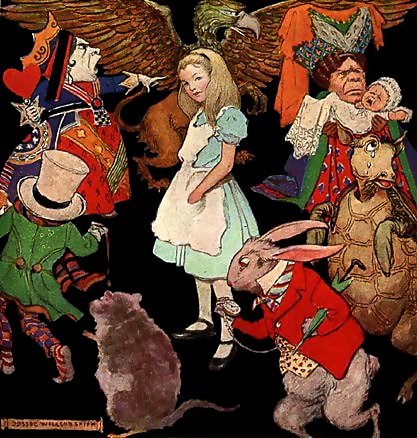Does anyone else feel like we have fallen down the rabbit hole when it comes to the discussion of national unity?
Last year, former Prime Minister Tony Abbott caused controversy when he said, “You don’t migrate to this country unless you want to join our team.” Such a statement would be utterly unremarkable, in fact, it would be regarded as obvious wisdom in any non-Western nation, and any Western nation until a generation or two ago.
Yet Tony Abbott was vigorously condemned by media commentators, politicians and commu nity figures alike. Stating that members of the community should want to join ‘team Australia’ was branded as grossly offensive and divisive, despite the fact that his statement was about strengthening unity. Strangely enough, the word ‘team’ implies unity and co-operation for a particular purpose. In what strange kind of wonderland does the word ‘team’ be seen as meaning the opposite?
nity figures alike. Stating that members of the community should want to join ‘team Australia’ was branded as grossly offensive and divisive, despite the fact that his statement was about strengthening unity. Strangely enough, the word ‘team’ implies unity and co-operation for a particular purpose. In what strange kind of wonderland does the word ‘team’ be seen as meaning the opposite?
It is the kind of wonderland where educators and administrators believe that segregating school students and withdrawing some of them from singing the national anthem is seen as ‘inclusive’ and fostering unity. Such actions of course, can only produce the opposite. Such actions by teachers and school leaders not only inhibits unity being formed, but fosters division. And for such division to be created through the use of our national song as the instrument is utterly scandalous.
The purpose of our national anthem and our flag are to be symbols of unity, uniting all Australians, no matter our ethnic background, religion, financial status, preferences or hobbies. These are the things that symbolically unite a whole people, regardless of what our other preferences happen to be.
To withdraw school children from singing the national anthem with their class mates introduces a massive rift and culture of segregation in our community. I am ashamed that I even need to make these remarks about the bleedingly obvious consequences of such actions which will have the exact opposite effect to their purported intention. Our current discourse around national unity is reminiscent of Alice’s conversation with Humpty Dumpty in the children’s fantasy book, Through the Looking Glass:
“But ‘glory’ doesn’t mean ‘a nice knock-down argument’,” Alice objected.
“When I use a word,” Humpty Dumpty said, in rather a scornful tone, “it means just what I choose it to mean—neither more nor less.”
“The question is,” said Alice, “whether you can make words mean so many different things.”
“The question is,” said Humpty Dumpty, “which is to be master—that’s all.”
When it comes to the discussion of national unity and identity, we are living in a wonderland. It is a wonderland where ‘unity’ means ‘division.’ And increasingly, ‘war’ means ‘peace’ and ‘good’ means ‘evil.’
Humpty’s fate was not a happy one, and it was the consequence of believing and living in a fantasy world that was opposed to reality.
“All the king’s horses and all the king’s
Couldn’t put Humpty together again.”
Let that not be our destiny.
Links:
Muslim children walk out when national anthem is sung
School students ‘segregating’ in Australian suburbs where public housing meets gentrification










